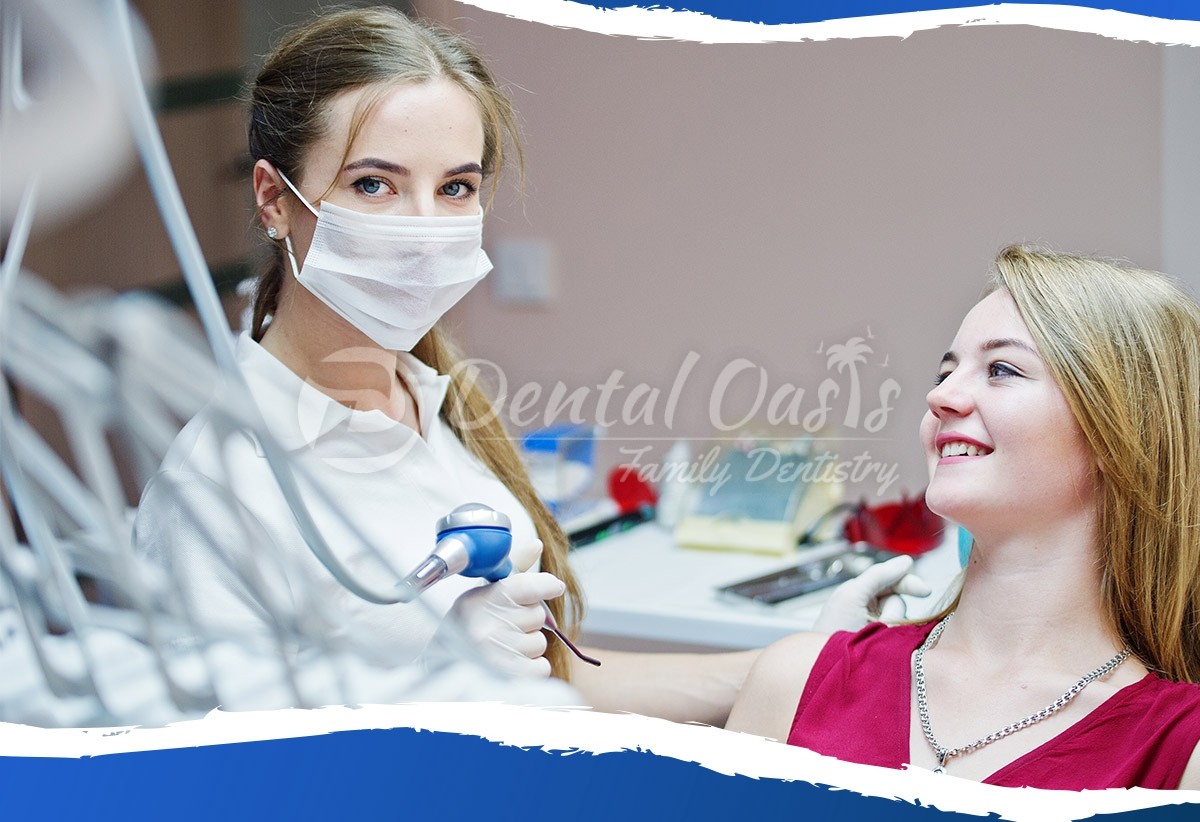Routine Dental Exams: To maintain the health and strength of your teeth

Taking good care of your teeth and gums doesn’t just lead to good oral health but is also conducive to improved overall health. Routine dental exams are a strong component of dental care as they help maintain the health and strength of your teeth. In fact, these go a long way in minimizing the risk of tooth decay and periodontal disease.
Recommended Routine Dental Exam Duration
Typically, routine dental visits are recommended once every six months. The dentist, however, may recommend more frequent visits if you are at risk and there are active conditions that threaten your teeth and gums. The risks could include smoking or even consumption of medications that cause dry mouth, and more.
It is important to remember that several oral conditions are asymptomatic in the early stages and hence regular dental checkups can go a long way in diagnosing them before they become chronic. In fact, your dentist will make use of advanced technologies so as to detect conditions that cannot be seen with the naked eye. For example, dental x-rays. It can reveal cavities, signs of gum disease, bone loss and other such issues, well before they become chronic.
What does include in Routine Dental Exam?
1. Cleaning of Teeth
Routine Dental check-ups also involve Prophylaxis cleaning of teeth and thus removing plaque, which if left on the teeth can harden into tartar that not only erodes the teeth but is also known to cause severe gum infection. For patients who need more than regular cleaning, there is also the option of deep cleaning. Scaling & Root Planning is effective in removing the tartar beneath the gum line.
2. Oral Cancer Screening
Importantly, regular dental visits also involve screening for oral cancer. In fact, oral cancer is a common cancer of the head & neck that affects people all over the world. There are as many as 54,000 diagnosed cases of oral cancer in America alone, each year. While oral cancer isn’t hard to diagnose, it is important to have an early diagnosis for effective treatment. With late detection, fatality rates tend to be high.
The areas examined during an oral cancer screening include:
- Lining of the cheek
- Floor and roof of the mouth
- Gums
- Lips
- Tongue
- Tonsils
Typically, oral cancer screening involves the following:
A. Visual exam
This largely involves looking for lesions in the mouth and throat. These may show up as thick white patches or abnormally red areas.
B. Palpation
This involves your healthcare provider to look for any lumps around the face, neck, and jaw.
C. Oral cancer screening dye
Coating any lesions with a dye is another tool to help identify areas that may be cancerous.
D. Oral cancer screening light
The use of special light can also help identify abnormal tissues in the mouth. Under this light, a healthy tissue will appear dark, however any abnormal tissue will appear white.
If the screening indicates any abnormality, the dentist will then refer you to a specialist.
Preparation required for a dental exam
There are no major preparations required for a dental exam. However, if you suffer from some health conditions such as heart issues, immune system disorders or have had any recent surgeries, you may be required to take some antibiotics before your exam. Also, in case you are pregnant, be sure to tell your dentist so as to avoid dental x-rays.
It is important to maintain oral hygiene between check-ups. This involves:
- Brushing your teeth twice daily with a fluoride toothpaste.
- Flossing your teeth daily.
- Cleaning the surface of your tongue to remove bacteria.
- Using a mouthwash.
- Replacing your toothbrush every three or four months.
- Eating a healthy diet, avoiding sweets and sugary drinks.
- No smoking.
Advantages of routine dental checkups
Some of the advantages of regular dental exams include:
1. Improved Overall Health
With regular oral checkups, you can you keep your oral health maintained. Some of the common oral diseases include:
- Cavities
- Gum Disease
- Periodontitis
- Oral cancers, and more.
Additionally, good oral health is a key indicator of your overall health. Compromised oral health can lead to issues with heart and other major organs, digestive issues, premature birth and more.
2. Improved Savings
It stands to reason that timely diagnosis will ensure you have to contend with lesser trouble as opposed to a scenario where the disease has already spread. What it also means is that you do not have to spend a fortune dealing with complex issues. After all, you would rather pay for routine dental exams that could detect a cavity, as opposed to a more painful root canal treatment that could result from leaving a cavity unattended.
To sum up
In order to keep your mouth healthy, good care of teeth & gums is essential. This is made possible by practicing good dental habits at home, as also ensuring you do not miss your regular dental exams.
At Dental Oasis Family Dentistry, we perform the anxiety-free dental check-ups and treatments. To keep your teeth and gum healthy, schedule a dental appointment now.




